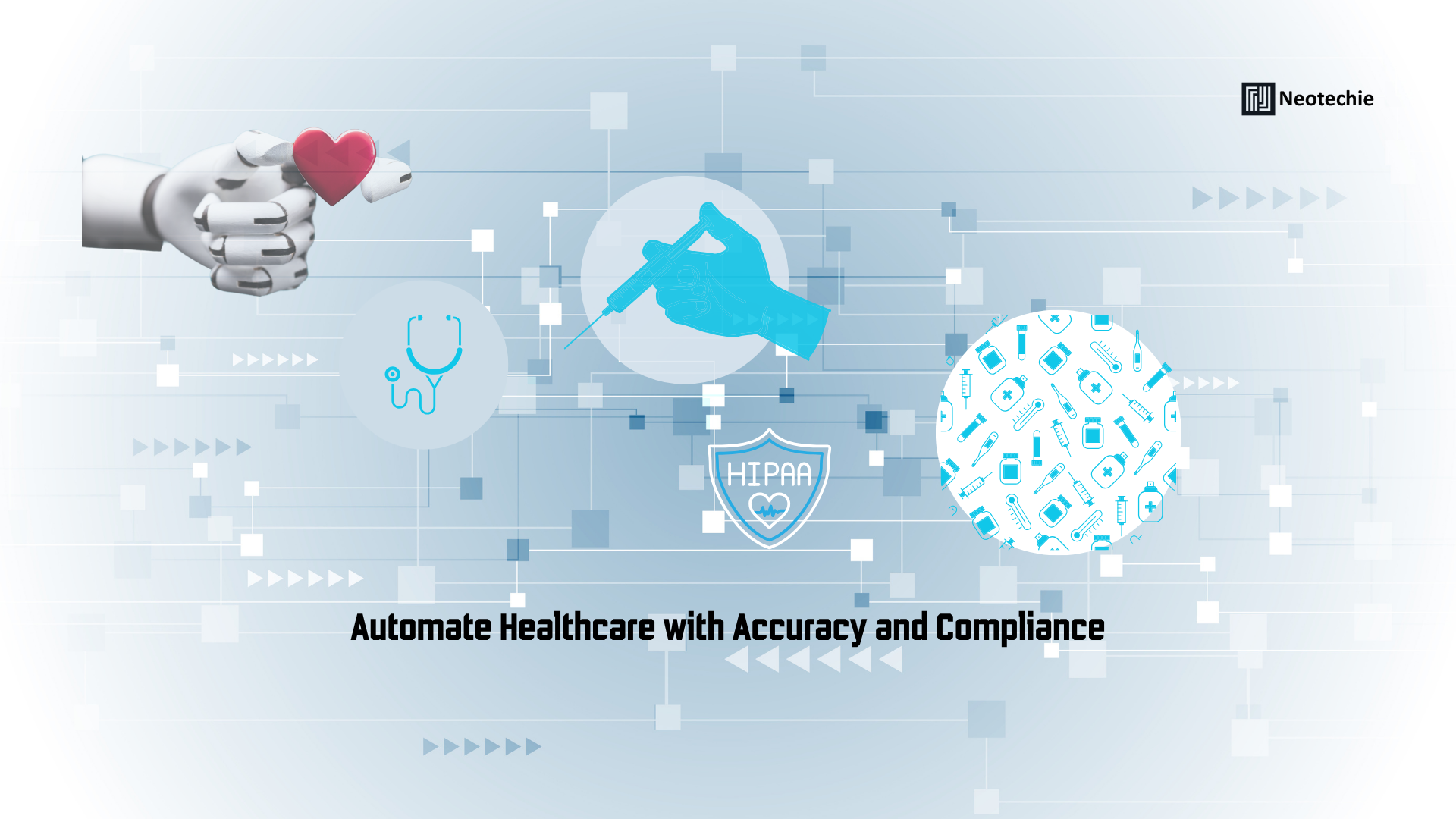RPA in Healthcare: Ensuring Accuracy and Compliance
In the healthcare industry, accuracy, efficiency, and compliance are paramount. Robotic Process Automation (RPA) has emerged as a powerful tool to enhance these critical aspects by automating routine, time-consuming tasks. Some of the world’s largest hospitals and healthcare systems have already adopted RPA to streamline operations, reduce errors, and ensure regulatory compliance across various functions.
Optimizing Information Management
Healthcare institutions manage vast amounts of sensitive data, from patient records to medical histories. RPA helps automate the extraction, entry, and validation of this information, ensuring accuracy while freeing up staff from mundane administrative tasks. Bots can quickly update patient databases, eliminating manual data entry errors that could lead to patient care disruptions or compliance issues.
Prescription Management
Managing prescriptions, including the verification and processing of medication orders, is a task that requires both speed and accuracy. RPA bots can automatically verify prescription details, check for potential interactions or errors, and process them more efficiently than manual workflows. This not only reduces wait times for patients but also ensures that prescriptions are handled in compliance with regulations.
Insurance Claim Processing and Payment Cycles
The insurance claims process is often fraught with complexity, delays, and human error. RPA can expedite this process by automating the submission, tracking, and follow-up of insurance claims, ensuring timely reimbursements. Bots can cross-check claim details, ensuring they meet all regulatory and insurer requirements before submission. This automation accelerates payment cycles, improves cash flow, and reduces the administrative burden on healthcare staff.
Conclusion RPA in healthcare significantly enhances operational efficiency while ensuring accuracy and compliance in critical processes. By automating high-volume tasks like information management, prescription handling, and insurance claims, healthcare providers can improve service delivery, reduce errors, and ultimately provide better patient care. With growing adoption, RPA is shaping the future of healthcare operations, making them more efficient, cost-effective, and patient-centric.

